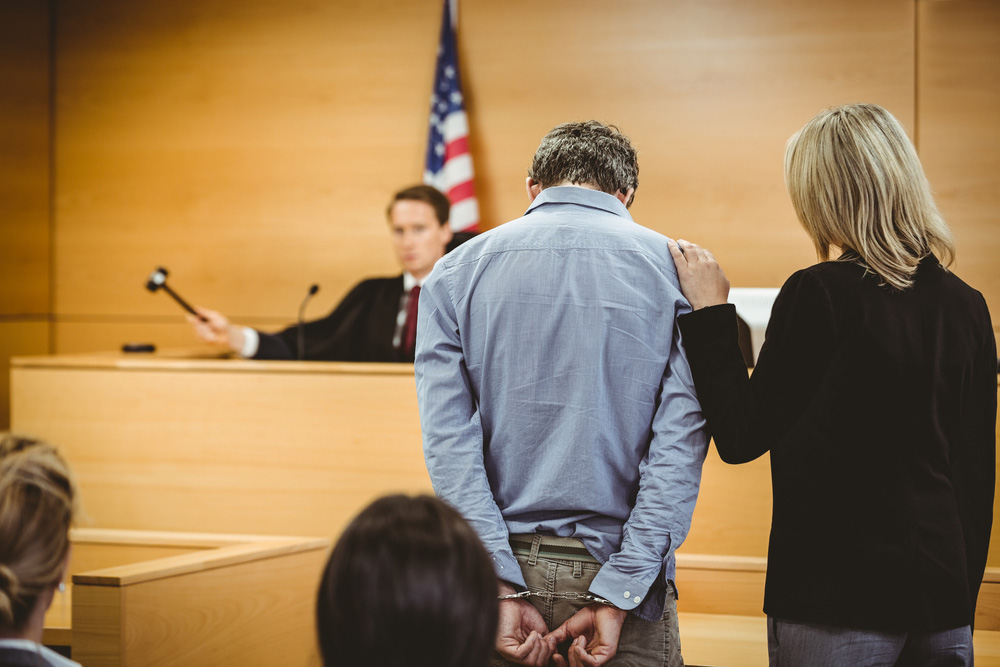Before you can be arrested and charged with a crime, the officer must have “probable cause” to do so. Specific law enforcement agencies (including the Corpus Christi Police Department) may have certain procedures with regard to search warrants, interrogation, seizure of property, or anything else that may be relevant to the process. Many people make the mistake of waiting to contact an attorney after they have been arrested, but hiring a lawyer early in the process (such as in the investigation stage) can have a positive impact on your case.

The Arrest
Once the police have probable cause, they will arrest you. This is when you’ll be booked at a local police station or jail. During this process, the police will take your fingerprints and will photograph you. They will also record the charges that have been filed against you. You may even be searched and questioned. You have no legal obligation to talk to investigators. In fact, you’re encouraged not to speak with any police officer without the presence of your attorney.
The Arraignment and Bail
Your first appearance in court is called an “arraignment,” and it’s the first time that formal charges will be filed against you. This brief hearing must take place as soon as possible after you have been arrested, and it’s where you will appear in front of a judge with your attorney (if you choose to hire one). The judge will confirm that you’re the one being charged, that you know what you’re being charged with, and how you intend to plead (guilty, not guilty, or no contest).
The arraignment is also when your bail amount will be set, and your next court appearance will be scheduled. Bail will allow you to go home while the trial is taking place, which is an amount of money that the court holds to make sure you come back at your scheduled trial date. This amount will be set by the judge.
Pretrial Hearings and Plea-Bargaining Process
The next step in the criminal defense process involves pretrial conferences and hearings, which are a series of meetings between the prosecution and the defense. Both parties talk about the strengths and weaknesses in the case, as well as any pretrial motions and indirect factors that may affect the plea-bargaining process. This is when the defense attorney may try to work out a deal with the prosecution to prevent a trial, which can include getting them to reduce the charges in exchange for a guilty plea.
The Trial
If the defendant pleads “not guilty” and a plea agreement can’t be reached, the case will go to trial. This will often take place in the following order:
- Jury Selection — If the trial requires the presence of a jury, twelve of them must be selected. Both the defense and the prosecution can also challenge any potential jurors.
- The Prosecution’s Case — After the jury has been selected, the trial starts with the prosecution making its opening statements and with presenting evidence.
- The Defense’s Case — After the prosecution has made its case, the defense will try to find holes or weaknesses in the prosecution’s arguments.
- Closing Arguments — After both sides have made their case, each side will make their final statements. The prosecution will sum up its arguments first, which will be followed by the defense.
After the trial process is over, it’s time for the judge or jury to decide on a verdict.
The Verdict
After the trial proceedings have been completed, the judge or jury will meet in private to determine whether the defendant is guilty “beyond a a reasonable doubt.” This part of the process can be done in minutes, or it can go on for weeks. Once they decide on a verdict, it’s read to the defendant in court.
Sentencing
If you have pleaded or have been found guilty, the sentence for the crime on which you have been convicted will be set by the judge. The length and severity of the punishment must fit the crime, which is a difficult process that involves looking at the defendant’s criminal record, level of remorse, and a number of other factors.
The Appeal
If you have been convicted on some or all of the criminal charges that have been filed against you, you have the right to appeal the verdict up to at least one level of the appellate court. The Texas Court of Appeals is the state’s mid-level court system. It looks for any improper procedural issues that have taken place during the initial trial, and it has the power to overturn the decision of a lower court. The highest court in the state is the Texas Court of Criminal Appeals, and they can take appeal cases from the mid-level court system.
If you’re looking for a criminal defense attorney in Corpus Christi to help you with your case, be sure to get in touch with Gale Law Group.
